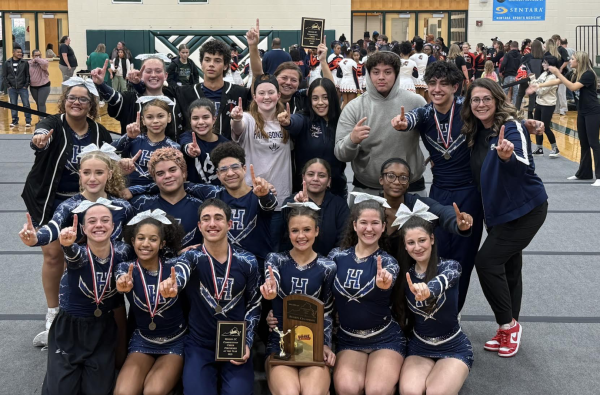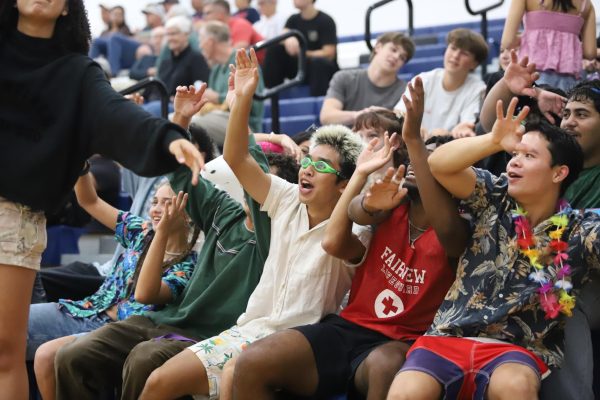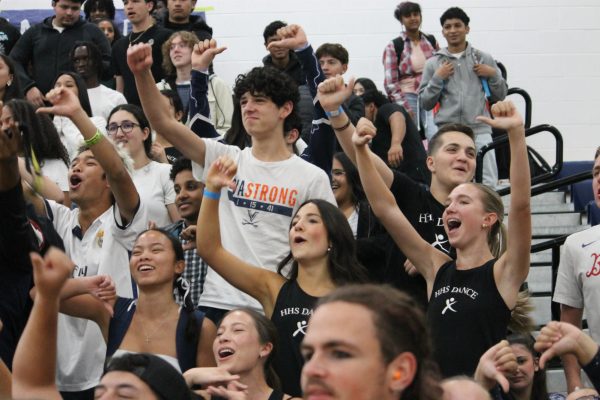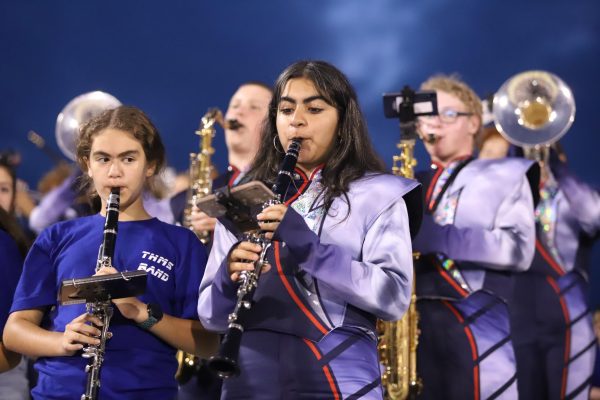Q and A with City Council candidate Sal Romero
This Q and A was done as part of a series covering all the non-incumbent candidates for the city council election on Nov. 6. More Q and A’s will be posted throughout this week.
Q: Why did you decide to run?
A: Back in 2016, after the presidential election, I started a group of Latino leaders here in Harrisonburg, called Latinos Del Valle. This includes a good number of the local Latino leaders. One of the conversations we were having was, “We need to make sure that we find someone to run for City Council.” That was the start of thinking about it. I ran in 2010 as a democrat as well. Right away, people were like, “You should be the one running. You’ve run before, and you’ve been in this community for a long time.” That got me started because one, I have the perspective of an educator. I understand the importance of high quality education for everyone. I [also] have the experience of an immigrant, so I can bring that lense to the conversation. For me, in addition to being encouraged by the local Latino leaders, I’ve been around politics and education long enough to know that the decisions that are being made don’t always include everyone. The decisions don’t always include people who are disenfranchised from government. They don’t include people who come from different backgrounds. They don’t include people who just aren’t in the know of politics. For me, it is critical that we have representation at the City Council and that we have someone who understands the diversity of our city and can actually bring people together and create a system that allows people to access it regardless of barriers. We will find a way to get people involved.
Q: What are some parts of your platform that affect students or young people?
A: Obviously education. Education can either impact a student positively or negatively. I have been a teacher. I have been a principal as well here in Harrisonburg. If we have a strong educational system, and we have lots of opportunities and choices and just excitement around learning, then that’s going to be great for our students… If we have a good educational system, that will not only help [students] excel academically, but it will also help them prepare for career, college, and life. On the other hand, if we don’t have a good school system, that means that our kids will not be able to enter the workforce or be ready for college or be ready to just be citizens of Harrisonburg.
Q: What are some things the school system does well and what can be improved?
A: This is my thirteenth year [working in HCPS]… I think one of the things we do well is that we recognize that diversity is our strength, and we build up on that. We not only find ways to learn from each other, but we also find ways to connect with the broader community. So I was on the State Board of Education, and governor McAuliffe appointed me to that position for four years. I had the opportunity to visit different school systems around the state, and one of the things that was always interesting to see was the supports that different schools have in place for their students. Very few school systems come close to what we do. We put our money where we think is important. So when a student comes to us with no language, with no education, we find them the resources. We are always looking to create great opportunities for our kids… This is probably the hardest question because I need to be very objective about what we need to do better. What do we need to do better as a school system? We know who our students are that are struggling. The data is very clear. This is not a unique issue to Harrisonburg; I think it’s an issue to a lot of different school systems. If you look at reporting groups, in this case Hispanic students, we are still not reducing the achievement gap. Year after year, Hispanic male students are underperforming in certain areas. Why is that? I don’t think we’ve gotten to the point where we’re able to identify why these students are still struggling. I think we’re doing a better job now in the sense of [including the community in education]… It’s not just the school that’s responsible for educating the students, it’s a responsibility of all of us as a community.
Q: Do you have any ideas for new programs you’d like to see in the school system?
A: For entering freshman this year, there are new requirements for graduation… So what that means is that all students will need to experience a career exploration starting in middle school. And furthermore have more opportunities to be out in the community through internships and apprenticeships… I think right now our job is to continue to create partnerships with our businesses that will allow our students to have a place to go and experience to have.
Q: What is your plan for building the new high school?
A: As I understand it, City Council has the opportunity to vote again in January. So the original recommendation of the Space Study Committee, which I was a part of, was that a new school should be built by 2021. The current City Council booted it down the road, so now it’s 2023. I think we need to look and see what is realistic. If it was up to me, we could build it tomorrow. Obviously, that couldn’t happen. 2021 will not be realistic. I think 2022 might be more realistic… I will vote to move it to 2022. I will be very firm on that. That’s based on the architect’s recommendation. We can say as soon as possible, but what does that really mean? I think 2022 is still realistic based on my conversations with people.
Q: Our student body continues to grow. How do we keep paying for schools?
A: I think when a decision like this is made, the decision has to be well informed. [When I was on] the State Board we made a lot of really important decisions for the 1.5 million students in the State of Virginia. So, to me, it’s not just that I decide based on what I think is best, but we decided based on what we know is true… I would like to see us be very strategic when we plan this and be visionaries. When they built [the current high school], they were not really thinking beyond three years. We have to think beyond five and 10 and maybe even 15 years because we cannot afford to build new schools every few years. What I would do right now is look at our numbers, and determine how much room we have to grow… I think if we build a second high school, I think that will be able to help us for a really long time.
Q: What qualifies you to speak for young people or students?
A: First of all, I work in the schools. I have worked with young people for almost 15 years… I’m fairly present in the community. I understand our diverse community. I feel like, as an educator, I have a pretty good pulse of what’s going on. In my other roles in the community, I get to speak with other community leaders. It’s not only that I know young people, but I get to speak with a lot of parents in my role as a parent coordinator… I feel like I have a good basis to why I feel like I should be an advocate for young people.
Q: One of the points in your platform is inclusion. What would you do to make sure that student voices are heard?
A: Why do students not come to City Council [meetings]? Well, because they have extracurriculars, because they have jobs, maybe because they have siblings they care for. It’s not because they don’t want to; it’s because it hasn’t been something they have the access to. I think it’s about access. From the school system, we have a great opportunity to teach our young people the importance of being involved with local politics. Often times in government class, you talk about world issues and national issues, but very infrequently do you talk about local issues. Really, those are the ones that impact us the most. I’d like to see more education in our schools regarding local politics, non-partisan politics… How would we be able to include high school kids or middle school kids? It could be very simple. When [City Council] has public forums, we could easily send information to the schools or have a young people day. [We should] not only have the kids come to us, but we should go to them… Like I said, we need all the voices represented, and when I say all the voices, it doesn’t just mean I’m identifying people by race or ethnic group, I’m identifying people by whatever makes them different… I think sometimes we don’t look far enough. We believe that we have all the answers, but it’s really impressive to hear young people think about things… I think one of the things that I will do if elected that others don’t do is that I relate with young people fairly well… People always feel comfortable reaching out to me, and I am not afraid to ask people how things are going. Every day when I see somebody new, I ask them how’s life for them? I don’t see enough of that with our elected officials.
Q: What advice do you have for students that are interested in getting involved in the community and politics?
A: As a matter of fact, right now I have an HHS student that is shadowing me.
Your donation will support the student journalists of Harrisonburg High School. Your contribution will allow us to purchase equipment and cover our annual website hosting costs.














